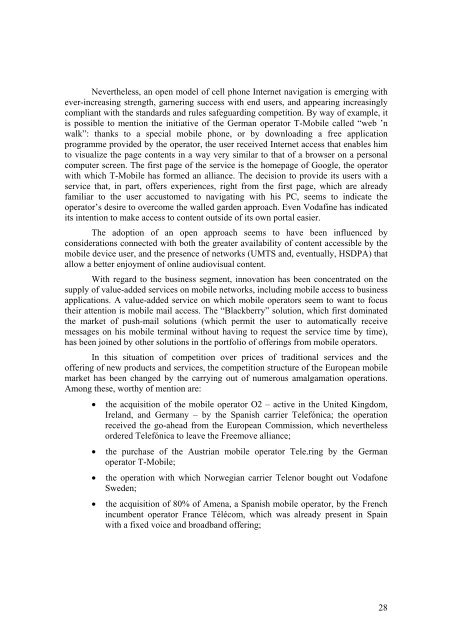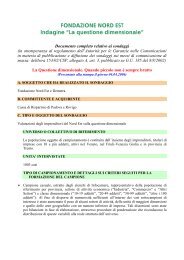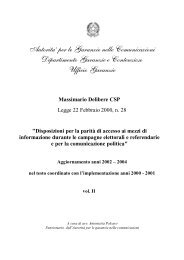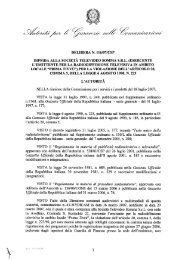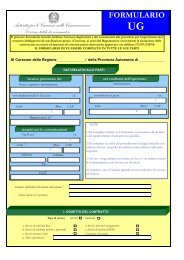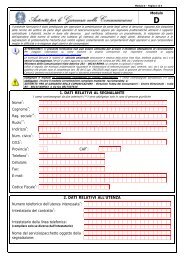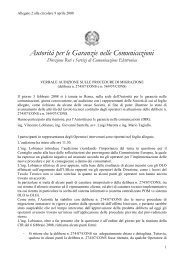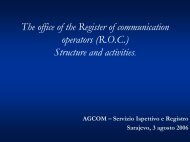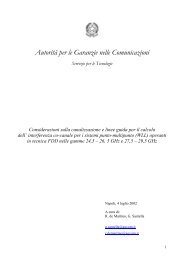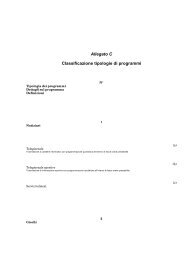Communications Regulatory Authority
Communications Regulatory Authority
Communications Regulatory Authority
You also want an ePaper? Increase the reach of your titles
YUMPU automatically turns print PDFs into web optimized ePapers that Google loves.
Nevertheless, an open model of cell phone Internet navigation is emerging with<br />
ever-increasing strength, garnering success with end users, and appearing increasingly<br />
compliant with the standards and rules safeguarding competition. By way of example, it<br />
is possible to mention the initiative of the German operator T-Mobile called “web ’n<br />
walk”: thanks to a special mobile phone, or by downloading a free application<br />
programme provided by the operator, the user received Internet access that enables him<br />
to visualize the page contents in a way very similar to that of a browser on a personal<br />
computer screen. The first page of the service is the homepage of Google, the operator<br />
with which T-Mobile has formed an alliance. The decision to provide its users with a<br />
service that, in part, offers experiences, right from the first page, which are already<br />
familiar to the user accustomed to navigating with his PC, seems to indicate the<br />
operator’s desire to overcome the walled garden approach. Even Vodafine has indicated<br />
its intention to make access to content outside of its own portal easier.<br />
The adoption of an open approach seems to have been influenced by<br />
considerations connected with both the greater availability of content accessible by the<br />
mobile device user, and the presence of networks (UMTS and, eventually, HSDPA) that<br />
allow a better enjoyment of online audiovisual content.<br />
With regard to the business segment, innovation has been concentrated on the<br />
supply of value-added services on mobile networks, including mobile access to business<br />
applications. A value-added service on which mobile operators seem to want to focus<br />
their attention is mobile mail access. The “Blackberry” solution, which first dominated<br />
the market of push-mail solutions (which permit the user to automatically receive<br />
messages on his mobile terminal without having to request the service time by time),<br />
has been joined by other solutions in the portfolio of offerings from mobile operators.<br />
In this situation of competition over prices of traditional services and the<br />
offering of new products and services, the competition structure of the European mobile<br />
market has been changed by the carrying out of numerous amalgamation operations.<br />
Among these, worthy of mention are:<br />
• the acquisition of the mobile operator O2 – active in the United Kingdom,<br />
Ireland, and Germany – by the Spanish carrier Telefónica; the operation<br />
received the go-ahead from the European Commission, which nevertheless<br />
ordered Telefónica to leave the Freemove alliance;<br />
• the purchase of the Austrian mobile operator Tele.ring by the German<br />
operator T-Mobile;<br />
• the operation with which Norwegian carrier Telenor bought out Vodafone<br />
Sweden;<br />
• the acquisition of 80% of Amena, a Spanish mobile operator, by the French<br />
incumbent operator France Télécom, which was already present in Spain<br />
with a fixed voice and broadband offering;<br />
28


